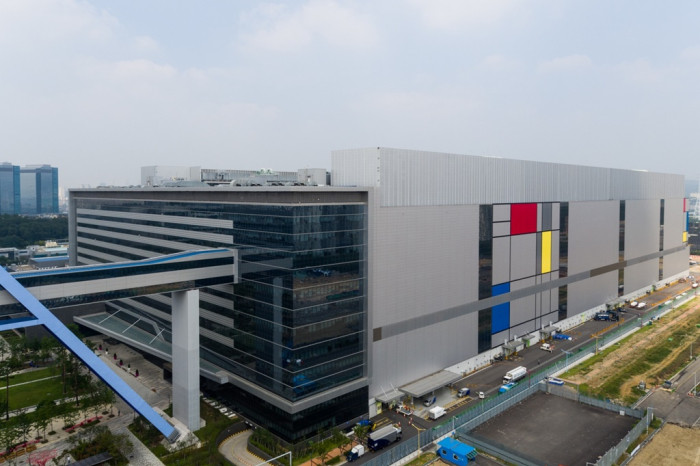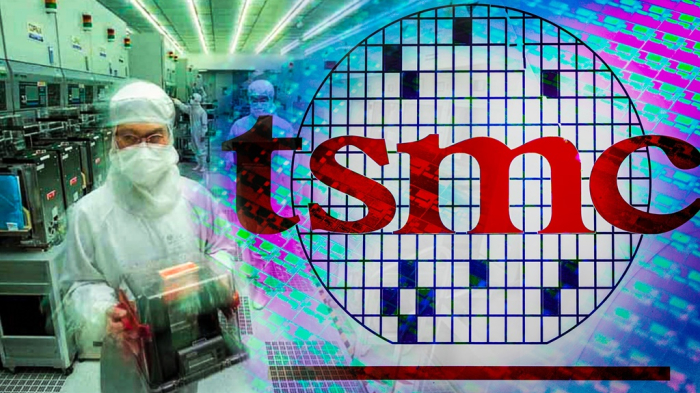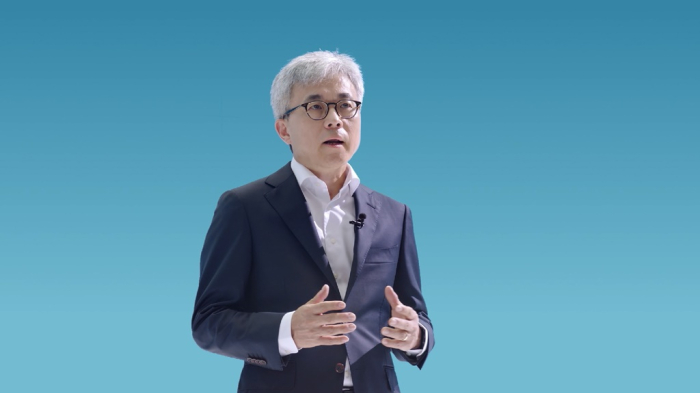Samsung surprises foundry industry with plan for 2 nm chips
To attract major customers such as Google, Qualcomm and Apple as TSMC has yet to unveil 2 nm production plans
By Oct 10, 2021 (Gmt+09:00)
LG Chem to sell water filter business to Glenwood PE for $692 million


KT&G eyes overseas M&A after rejecting activist fund's offer


Kyobo Life poised to buy Japan’s SBI Group-owned savings bank


StockX in merger talks with Naver’s online reseller Kream


Meritz backs half of ex-manager’s $210 mn hedge fund



Samsung Electronics Co. caught its global semiconductor competitors off guard last week at the Samsung Foundry Forum 2021 with its announced plan to mass produce 2 nanometer chips from 2025.
Samsung had long not unveiled a detailed roadmap for semiconductor micro-process production largely because the imprisonment of its vice chairman Jay Y. Lee had delayed major investment decisions. Meanwhile, within the last year, bigger foundry rival Taiwan Semiconductor Manufacturing Co. (TSMC) and US tech giant Intel Corp. announced massive investment plans on the 3-nanometer process node.
Samsung had been predicted to join the race for the 3-nm process, but instead revealed a plan for 2mn chips that could help the company overtake TSMC sooner than expected.
WIDENING GAP WITH TSMC
TSMC is the global foundry leader with an estimated market share of 53-56%. Samsung, the second-largest foundry maker, had until recently occupied about 17%.
But the gap between the two companies has been widening recently. TSMC raised its market share to 58% in the second quarter from 55% in the first, while Samsung’s shares fell to 14% from 17% during the same period, according to market research firm Counterpoint Research.
While the Taiwanese company was preparing aggressive measures to expand the market, Samsung postponed investment plans due to the absence of its top decision-maker. Earlier this year, TSMC announced it will invest $100 billion in the foundry business over the next three years. It is set to start operations of a 5 nm factory in the US state of Arizona from 2024, while considering a 28 nm chip plant for automotive semiconductors in Japan. The leader was known to be discussing a production line in Germany.

TSMC’s bold plans came as the global foundry industry is rapidly growing with more and more companies seeking self-sufficiency in semiconductors.
Apple Inc. is slated to release a laptop equipped with the M1X, its own system chipsets, soon. In August, Tesla Inc. unveiled the D1 chip for artificial intelligence (AI). Google recently launched the Tensor, an application processor designed in-house for its Pixel phones. Carmakers, which have been suffering from the ongoing automotive chip shortage, are also seeking to develop the components by themselves.
The global foundry market is forecast to grow to $130.3 billion in 2027 from $83.7 billion this year, according to a tech industry researcher Omdia.
The bullish outlook prompted Intel to resume the foundry business, industry sources analyzed. In July, Intel unveiled plans to produce the 20A, chips using circuitry measured at 2 nm, in 2024 and 1.8 nm chips in 2025, although the industry was skeptical if the company will able to secure a stable yield, or ratio of properly working products of 2 nm or below.
SAMSUNG FOUNDRY TO OCCUPY 40% IN MICRO-PROCESS CHIP MARKET
Samsung’s plan for mass production of micro-process chip is likely to restructure the global foundry market. The company aims to apply its proprietary gate-all-around (GAA) transistor architecture, a key technology that improves electrostatic properties that translate into increased performance, reduced power and optimal chip design, according to Samsung.

Samsung also said it will begin mass production of its first-generation 3 nm chips in the first half of next year, compared to July 2022 when TSMC is known to be manufacturing the products in large quantities.
The South Korean tech giant is predicted to expand its global foundry market share. Samsung’s share is forecast to reach up to 40% this year in the global market for chips of 10 nm or below, according to Taiwan-based market researcher TrendForce.
“Smartphone makers, in addition to server producers, are preferring micro-process chips with better performance and power efficiency,” said an industry source. “Increasing demand for chips of 10 nm or below will narrow the gap between Samsung and TSMC.”
Write to Sin-Young Park at nyusos@hankyung.com
Jongwoo Cheon edited this article.
-
 Foundry competitionSamsung to make 2-nanometer GAA chips by 2025 to overtake TSMC
Foundry competitionSamsung to make 2-nanometer GAA chips by 2025 to overtake TSMCOct 07, 2021 (Gmt+09:00)
3 Min read -
 Foundry competitionSamsung, TSMC in heated race for industry’s smallest 3 nm process node
Foundry competitionSamsung, TSMC in heated race for industry’s smallest 3 nm process nodeAug 04, 2021 (Gmt+09:00)
4 Min read -
 Semiconductor rivalrySamsung loses ground in foundry market as TSMC ties in with Japanese firms
Semiconductor rivalrySamsung loses ground in foundry market as TSMC ties in with Japanese firmsJun 01, 2021 (Gmt+09:00)
2 Min read -
 Foundry competitionSamsung, TSMC up ante in US foundry competition
Foundry competitionSamsung, TSMC up ante in US foundry competitionMay 24, 2021 (Gmt+09:00)
3 Min read -
 Foundry competitionIntel’s jump into foundry sets off alarm bells for Samsung, TSMC
Foundry competitionIntel’s jump into foundry sets off alarm bells for Samsung, TSMCMar 24, 2021 (Gmt+09:00)
3 Min read -
 Foundry businessSamsung wins Intel foundry order; TSMC takes GPU deal
Foundry businessSamsung wins Intel foundry order; TSMC takes GPU dealJan 21, 2021 (Gmt+09:00)
3 Min read -
 Chip packagingSamsung foundry ramps up chip packaging to compete against TSMC
Chip packagingSamsung foundry ramps up chip packaging to compete against TSMCNov 30, 2020 (Gmt+09:00)
2 Min read -
 Samsung beats TSMC to win new Qualcomm order to make mobile chips
Samsung beats TSMC to win new Qualcomm order to make mobile chipsOct 06, 2020 (Gmt+09:00)
2 Min read


